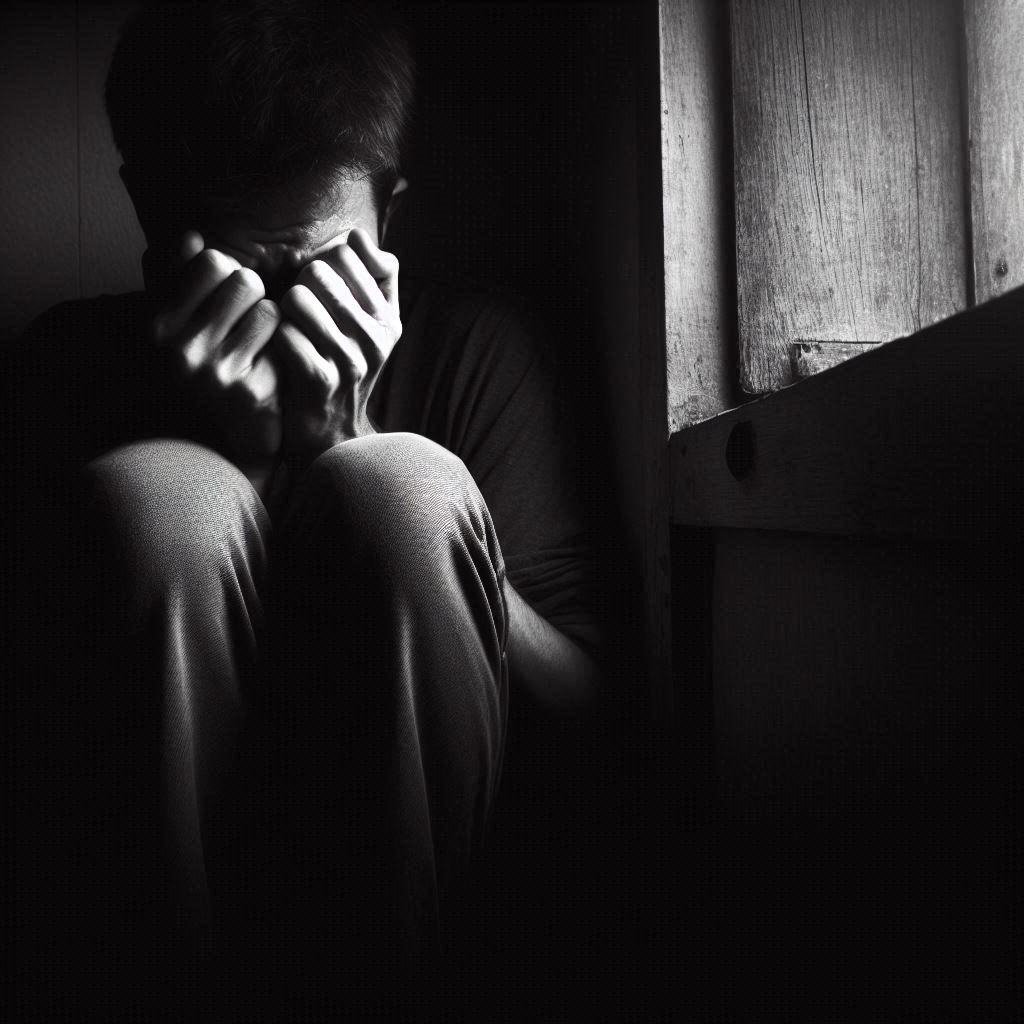Stepping outside should feel like a breath of fresh air, but for some, it feels like stepping into a terrifying unknown.
Known medically as agoraphobia, this condition grips many with intense anxiety about being trapped or helpless in open or crowded spaces. It’s a challenge that may seem insurmountable, but understanding and confronting it is the first step to reclaiming your freedom.
This post will explore effective strategies and insights to help you face and overcome this fear, ensuring the outside world becomes a less daunting place. So, let’s delve into practical steps and compassionate guidance to support your journey toward a more liberating life outdoors.
Understanding the Fear of Being Outside in Public Places
Many individuals experience a fear of being outside in public places, which can be attributed to various factors. This fear often goes beyond a simple worry and can develop into a condition known as agoraphobia. Understanding the roots of this fear is crucial in addressing its impact on daily life.
Agoraphobia: Symptoms and Causes
Agoraphobia is characterized by an intense fear of situations where escaping may be difficult or help might not be available in case of a panic attack. The symptoms of agoraphobia can manifest in different ways, including rapid heartbeat, hyperventilating, feeling hot and sweaty, chest pain, and difficulty swallowing. These physical manifestations are often coupled with overwhelming feelings of anxiety and dread.
The causes of agoraphobia can be multifaceted. This condition can develop as a complication of panic disorder, where a person associates specific environments or situations with panic attacks. Agoraphobia may also stem from a traumatic experience or a genetic predisposition to anxiety disorders. Understanding the symptoms and causes of agoraphobia is the first step towards managing and overcoming this challenging condition.
Impact of Irrational Fear on Daily Life
The irrational fear of being outside in public places can significantly impact an individual’s daily life and overall well-being. This fear can lead to avoidance behaviors, causing individuals to limit their activities and social interactions. As a result, those suffering from this fear may experience isolation, loneliness, and a reduced quality of life.
Moreover, the constant worry and anxiety associated with this fear can take a toll on mental health. It can lead to feelings of helplessness, depression, and overwhelming stress. The fear of public spaces can interfere with work, relationships, and personal fulfillment, further exacerbating the negative impact on daily life.
Understanding the profound effects of irrational fears on daily activities and mental health is crucial in seeking appropriate support and treatments to overcome these challenges. It is essential to address these fears proactively and compassionately to regain a sense of control and well-being in one’s life.
Overcoming the Fear
Dealing with an irrational fear of being outside in public places can be overwhelming, but taking steps to overcome this fear is essential for regaining control and living a fulfilling life. Here are some strategies to help you gradually conquer your fear:
Seeking Professional Help
Consulting a mental health professional, such as a therapist or counselor, is a crucial step in addressing your fear of public places. These professionals are trained to help individuals navigate through their fears, providing support, guidance, and evidence-based interventions tailored to your specific needs. Seeking professional help can offer you a safe space to discuss your concerns and develop effective coping strategies.
Cognitive Behavioral Therapy (CBT)
Cognitive Behavioral Therapy (CBT) is a widely used therapeutic approach that can be highly effective in managing and overcoming the fear of public places. Through CBT, you can work with a therapist to identify and challenge negative thought patterns and beliefs that contribute to your anxiety. By replacing these thoughts with more balanced and realistic ones, CBT helps you develop healthier coping mechanisms and responses to fearful situations.
Exposure Therapy
Exposure therapy is a form of behavioral therapy that involves gradually facing your fear in a controlled and safe environment. By exposing yourself to situations that trigger your fear of public places in a systematic way, you can desensitize yourself to the anxiety-provoking stimuli over time. This process helps you build confidence and resilience, ultimately reducing the intensity of your fear response and enabling you to navigate public spaces with greater ease.
Medication Options
In some cases, mental health professionals may recommend medication to alleviate the symptoms associated with a fear of public places. Antidepressants, anti-anxiety medications, or beta-blockers are among the medications that may be prescribed to help manage anxiety and panic symptoms. It’s important to work closely with a healthcare provider to determine the most appropriate medication and dosage based on your individual needs and medical history.
Overcoming the fear of being in public places is a journey that requires patience, persistence, and the willingness to step outside your comfort zone. By combining professional support, evidence-based therapies, and a personalized treatment plan, you can gradually conquer your fear and reclaim your freedom to engage with the world around you.
For more information on overcoming fears related to public spaces, you can refer to resources such as the Mayo Clinic and WebMD for additional insights and guidance.
Self-Help Strategies
If the fear of being outside in public places is overwhelming, there are self-help strategies you can incorporate to gradually ease your discomfort and build resilience. These strategies aim to empower you to navigate your fears with control and support.
Mindfulness and Relaxation Techniques
One effective way to manage the anxiety associated with public places is through mindfulness and relaxation techniques. Practices like deep breathing exercises and meditation can help calm your mind and body in challenging situations. By focusing on your breath and being present in the moment, you can reduce the intensity of panic or fear responses triggered by external stimuli.
Gradual Exposure to Triggers
Gradual exposure to triggers is a proven method for overcoming irrational fears. By gradually confronting situations that evoke anxiety, you can desensitize yourself to the fear response. Start by exposing yourself to mildly uncomfortable situations and gradually increase exposure as you build confidence. This controlled approach can help rewire your brain’s response to perceived threats, making it easier to navigate public spaces with time.
Building a Support System
Building a strong support system is essential in your journey to conquer the fear of public spaces. Surround yourself with understanding friends, family members, or a therapist who can offer encouragement and reassurance during challenging times. Having a supportive network can provide emotional backing, practical advice, and a sense of community, enhancing your resilience and determination to confront your fears.
By incorporating mindfulness and relaxation techniques, gradually exposing yourself to triggers, and nurturing a supportive network, you can develop effective self-help strategies to cope with and eventually overcome the fear of being outside in public places. Remember, progress takes time and patience, but with dedication and support, you can navigate through your fears successfully.
For more detailed information on self-help strategies for overcoming fear of public places, you can refer to Self-help – Phobias and Self-Help Strategies for Social Anxiety.
Living Well with Agoraphobia
Living with agoraphobia can present unique challenges, but with the right strategies, it is possible to lead a fulfilling life. Here are some practical approaches to help you manage agoraphobia effectively.
Setting Realistic Goals
Setting realistic goals is a crucial step in managing agoraphobia. By establishing achievable objectives, you can gradually build your confidence and sense of control. It’s essential to strike a balance between challenging yourself and ensuring that your goals are within reach. Overly ambitious goals can lead to frustration and setbacks. Working with a therapist to set realistic goals tailored to your individual needs can provide a roadmap for progress. Learn more about setting goals with exposure therapy here.
Maintaining a Healthy Lifestyle
A healthy lifestyle plays a vital role in managing agoraphobia. Regular exercise has been shown to alleviate symptoms of anxiety and depression, which are often associated with agoraphobia. Physical activity not only benefits your physical health but also has positive effects on your mental well-being. Proper nutrition and sufficient sleep are also essential components of a healthy lifestyle that can help you better cope with agoraphobia. Explore the benefits of exercise for managing anxiety here.
Engaging in Activities You Enjoy
Engaging in activities you enjoy is a powerful way to improve your overall well-being and quality of life. Pursuing hobbies and interests that bring you joy can serve as a distraction from anxious thoughts and help you relax. Hobbies that involve physical activity have been linked to reduced stress and improved mental health. By dedicating time to activities you love, you can create moments of respite and enjoyment amidst the challenges of agoraphobia. Discover how hobbies can improve mental health here.
Dealing with an Irrational Fear of Being Outside in Public Places
Confronting the fear of being outside in public places can be a challenging journey, but it is a path towards personal growth and freedom. By acknowledging and addressing your fear, you are taking the first crucial step towards overcoming it. Here are some strategies to help you navigate through this fear:
Seek Professional Help
If your fear of being in public spaces is significantly impacting your daily life and causing distress, seeking help from a mental health professional can provide you with the necessary support and guidance. Therapists and counselors can assist you in understanding the root causes of your fear and develop coping mechanisms to manage it effectively.
Gradual Exposure Therapy
Exposure therapy is a common technique used to help individuals confront their fears in a safe and controlled manner. By gradually exposing yourself to public spaces, starting with less intimidating environments and progressively moving towards more crowded areas, you can desensitize yourself to the fear and learn to manage your anxiety.
Practice Relaxation Techniques
Learning relaxation techniques such as deep breathing, mindfulness meditation, or progressive muscle relaxation can help you calm your mind and body when confronted with fear-inducing situations in public places. Practicing these techniques regularly can enhance your ability to cope with anxiety and fear.
Build a Support System
Surrounding yourself with supportive friends, family members, or a support group can provide you with comfort and encouragement as you work on overcoming your fear. Sharing your feelings and experiences with others who understand and empathize can empower you to face your fears with greater resilience.
Stay Positive and Patient
Overcoming an irrational fear of public spaces takes time and effort, so it’s essential to be patient and kind to yourself throughout the process. Celebrate small victories along the way and acknowledge your progress, no matter how incremental it may seem. Remember that setbacks are a natural part of growth, and each challenge you encounter is an opportunity for learning and resilience.
By implementing these strategies and staying committed to addressing your fear, you can gradually diminish its hold on you and reclaim your confidence in navigating public places with ease and comfort. Remember, you are capable of overcoming this fear and embracing the freedom that comes with conquering your inner struggles.








